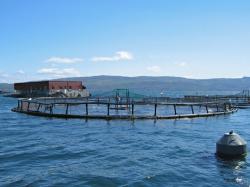Peter Marshall To Chair GAA's Zone Management Technical Committee
March 18, 2014 | 2 min to read

The Global Aquaculture Alliance (GAA) announced at Seafood Expo North America on March 17 that it is establishing a Zone Management Technical Committee to initiate the process of drafting Best Aquaculture Practices (BAP) standards for zone management.
Peter Marshall, founder and former CEO of Global Trust Certification, will chair the committee.
The chairman’s role will be to recruit about 12 members of the technical committee, retain a consultant to draft standards and convene the technical committee to come to a consensus on standards.
The standards would then be drafted by the technical committee, approved by GAA’s Standards Oversight Committee (SOC), released for public comment, and revised by the technical committee before finalization and approval by the SOC. The entire process is expected to take two years.
The SOC recommended that the technical committee be established at its meeting in Monterey, California, USA, in February.
Zone management, or spatial planning, encompasses measuring the collective impacts of aquaculture at the ecosystem level. In addition to protecting the ecosystem, zone management is intended to reduce the risk of disease.
The technical committee will identify the conditions that lead to disease and recommend measures to avoid or mitigate disease, which may include regulating the density of farms within a designated zone so as to avoid sharing of water inputs and outfalls; quarantining and controlling the movement of animals into the zone and between farms once introduced; adoption of best aquaculture practices at farm-level to reduce stress and improve animal welfare; introducing basic sanitary measures at the farm level; and structuring a dialogue among farmers and regulators to improve knowledge and compliance.
About BAP
A division of the Global Aquaculture Alliance, Best Aquaculture Practices is an international certification program based on achievable, science-based and continuously improved performance standards for the entire aquaculture supply chain — farms, hatcheries, processing plants and feed mills — that assure healthful foods produced through environmentally and socially responsible means. BAP certification is based on independent audits that evaluate compliance with the BAP standards developed by the Global Aquaculture Alliance. For more information on BAP, visit www.gaalliance.org/bap.
Source: Global Aquaculture Alliance (GAA)
